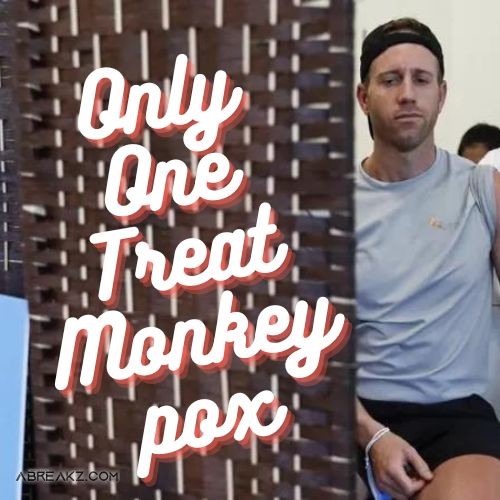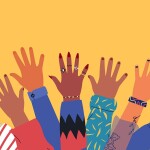The US administration has declared monkeypox a public health emergency, with cases increasing across the country. "This action will strengthen and accelerate the administration's response to the rapid and continuing transmission of monkeypox in the United States and the world, as well as a sign of the seriousness and urgency with which the administration is responding,"
Declaring monkeypox a public health emergency is part of the administration's comprehensive strategy to combat the monkeypox outbreak.
What is Monkeypox?
Monkeypox virus is transmitted to humans from a variety of wild animals, but its secondary spread is limited by human-to-human transmission. The case fatality rate in monkeypox outbreaks is usually 1-10%, with most deaths occurring in the younger population.
The disease is also transmitted primarily through respiratory particles in the form of droplets that usually require long periods of face-to-face contact, exposing family members of active cases to a high risk of infection. The disease can also be transmitted through vaccination or through the placenta (congenital monkeypox), and there is still no evidence that monkeypox can persist in human beings simply by transmission from one person to another.
Table of contents [Show]
Disease outbreaks and transmission
The World Health Organization confirmed that monkeypox in humans was first detected in 1970 in the Democratic Republic of the Congo in a 9-year-old boy who lived in an area where smallpox was eradicated in 1968. Most cases have since been reported in rural areas of the rainforest located in the Congo Basin and West Africa, particularly in the Democratic Republic of the Congo, where it was considered endemic, and where a major outbreak of the disease occurred in 1996 and 1997.
The organization added that infection with the disease results from indicative cases of direct contact with the blood of infected animals, their body fluids, their skin lesions or their mucous fluids, and cases of infection caused by handling monkeys, giant gambian rats or squirrels infected with the disease have been documented in Africa. It is the main reservoir of the virus. It is possible that eating undercooked meat from infected animals is a risk factor associated with the disease.
Transmission of the disease at the secondary level or from person to person can result from intimate contact with the respiratory tract secretions of an infected person or its skin lesions, or from contact with objects that have recently been contaminated with the patient's fluids or pest-causing substances.
Disease signs and symptoms
In addition, the organization clarified the symptoms of the disease, as the incubation period for monkeypox, which is the period between the stage of infection with its infection and the stage of its symptoms, ranges between 6 and 16 days, but it can range from 5 to 21 days.
The stages of infection are divided into the period of invasion, 0 days and 5 days, and it is characterized by fever, severe headache, enlarged lymph nodes, back and muscle pain, and severe weakness.
And the period of appearance of the rash within a period ranging between 1 and 3 days after infection with the fever, during which the various stages of the appearance of the rash crystallize, which begins on the face most often and then spreads to other parts of the body. The rash is most severe on the face in 95% of cases, and on the palms of the hands and soles of the feet 75%.
In about 10 days, the rash develops from macular papules (flat-based lesions) to vesicles (small fluid-filled blisters) and pustules, followed by crusts that may take up to three weeks to disappear completely.

Some patients also develop severe enlargement of the lymph nodes before the rash appears, a feature that distinguishes monkeypox from other similar diseases. Monkeypox is usually a self-limited disease and its symptoms last for a period ranging from 14 to 21 days, and children are more commonly infected with severe cases, depending on the extent of exposure to the virus, the health status of the patient and the severity of complications resulting from it.
The case fatality rate varies widely between epidemics, but its rate does not exceed 10% in documented cases, most of which occur among children. In general, younger groups appear to be more sensitive to monkeypox.
Disease Diagnosis
Differential diagnoses to be considered include other rash diseases, such as smallpox, chickenpox, measles, bacterial dermatitis, scabies, syphilis, and drug allergies. Enlargement of the lymph nodes during the onset of the disease may be a clinical feature that distinguishes it from smallpox.
Monkeypox can only be diagnosed definitively in a laboratory, where virus infection can be diagnosed by a number of different tests.
There is no cure, no vaccine
The organization also emphasized that there are no specific drugs or vaccines available to combat monkeypox infection, but its outbreak can be controlled. It has been proven in the past that vaccination against smallpox is 85% effective in preventing monkeypox, but this vaccine is no longer available to the general public.
After vaccination with it was stopped following the eradication of smallpox from the world. However, prior smallpox vaccination is likely to lead to a milder course of the disease.
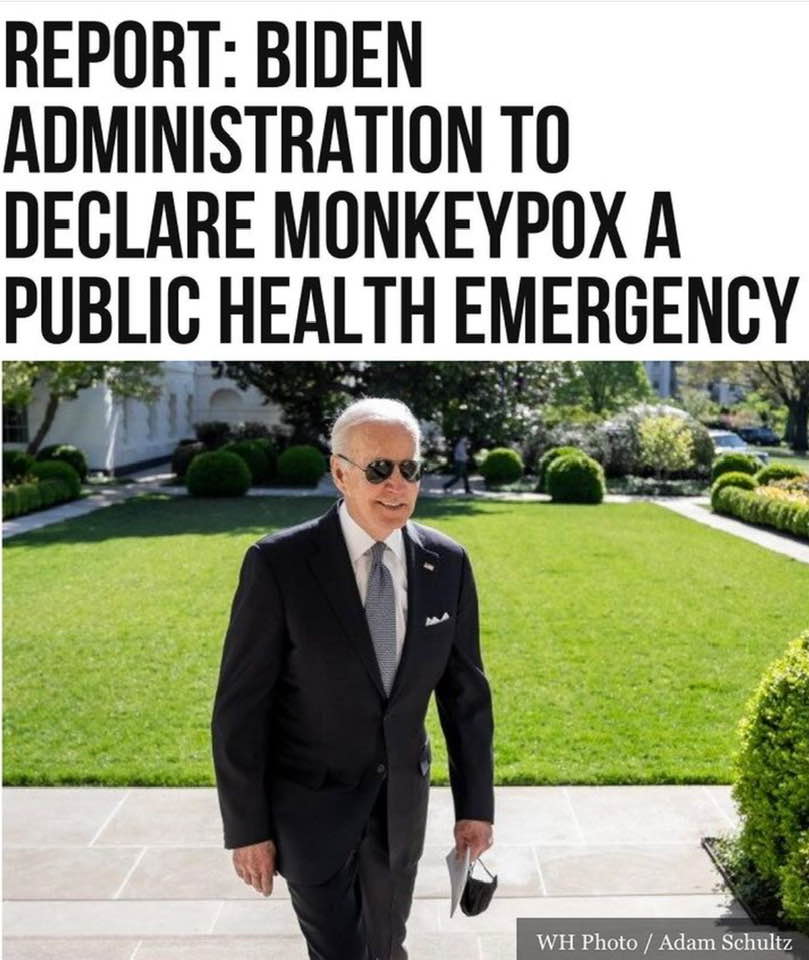
In Africa, it was found that monkeypox infection is carried by many genera of the following animals: striped squirrels, tree squirrels, gambian rats, striped mice, dormouse and predators. Doubts remain about the natural history of the monkeypox virus and more studies are needed to determine its exact reservoir and how it survives in nature.
Disease prevention
The organization noted that the only way to reduce people's infection is to raise awareness of the associated risk factors and educate people about the measures they can take to reduce the rate of exposure to it. Surveillance measures and rapid diagnosis of new cases are indispensable to contain outbreaks.
To reduce the risk of transmission from one person to another. Intimate physical contact with people infected with monkeypox should be avoided, gloves and protective equipment should be worn when caring for patients, and care should be taken to wash hands regularly after caring for or visiting them.
Reducing the risk of transmission from animals to humans Efforts to prevent transmission of the virus in endemic countries should focus on thoroughly cooking all animal products (blood and meat) before eating them, and wearing gloves and other appropriate protective clothing when handling sick or its infection-carrying tissues and during its slaughtering practices.
The announcement would accelerate the distribution of vaccines, therapies, and the provision of federal resources, to reduce the spread of monkeypox in the United States. The US government's announcement comes less than two weeks after the World Health Organization announced the highest alert level on the organization's scale in dealing with disease outbreaks, after a rise in the number of monkeypox infections around the world. According to US health officials, the number of monkeypox cases has risen to about 6,600. Twenty-five percent of these cases occurred in New York state, which self-declared a monkeypox emergency last week.
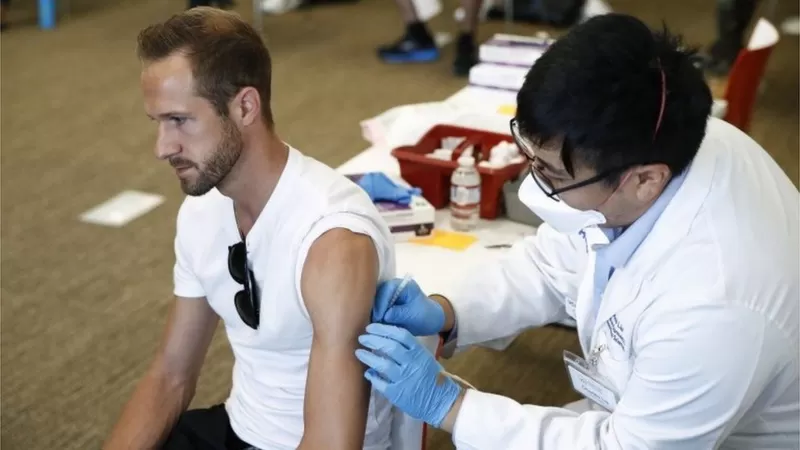
After New York in terms of the number of injuries, California and Illinois - which declared a state of emergency earlier this week.
So far, more than 26,000 people have been infected with monkeypox around the world, according to data from the United States Centers for Disease Control and Control.
A number of public health experts have expressed concerns that declaring a state of emergency could further stigmatize the disease.
Although anyone can get monkeypox, the disease is highly concentrated among gays. However, the factors for its spread are not limited to sex, but can include contact with an infected person.
Symptoms of monkeypox appear as a blister-like rash that can be itchy and painful. The blisters spread throughout the body, as well as other complications.
blisters
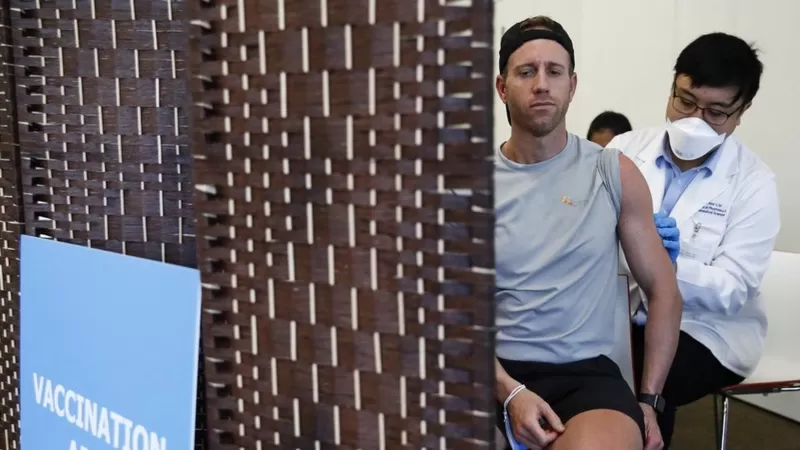
However, infections are usually mild and go away on their own without receiving treatment or hospitalization in adult patients. But the World Health Organization warns of high rates of mortality among young children.
Officials in the United States and other countries recommend that people at high risk of monkeypox - gay people and health care workers - get the vaccine on a priority basis.
Symptoms of monkeypox
The US government's declaration of the monkeypox outbreak as a public health emergency comes amid reports that vaccines and treatments for the disease are in short supply across the United States.
And the US Department of Health and Human Services said last week that it had ordered the distribution of more than five million more doses of the monkeypox vaccine, until next May.
Earlier this week, the White House also announced the appointment of a team to coordinate and oversee the monkeypox fight. This team includes Dr. Dimitri Daskalakis, a New York physician who has led successful initiatives to reduce the spread of HIV in the United States.
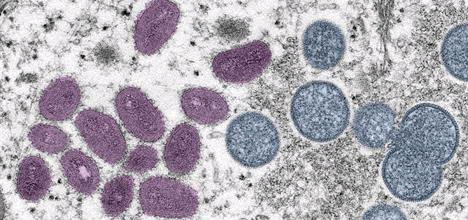
Tools
The virus has been transmitted to people who engage in sexual relations or close enough contact to overcome the vulnerabilities of spreading the virus.
The virus was not classified as a sexually transmitted disease, but a study published in the New England Journal of Medicine estimated that 95 percent of monkeypox cases were sexually transmitted, specifically between gay men.
This leaves us with two options to contain the disease: convince people to have less sex, or reduce the risk of contracting the disease when exposed to the virus.
gay science
Image released, Getty Images
comment on the photo,
The disease is mainly spread among gay men
Skip the podcast and keep reading
podcasts
simple change
A Simple Change
Simple change: What does your basket have to do with climate change?
Episodes
podcast end
Professor Paul Hunter of the University of East Anglia said that the easiest way to prevent the spread of the virus is to close sexual networks for a few months until the wave of the spread of the virus subsides, but he does not think that will happen.
Some adapt their sexual activities according to the warnings of monkeypox, and advice has been given to groups most at risk of infection.
But Professor Hunter says the lessons learned from sexually transmitted diseases are that people still have sex and vaccination remains voluntary.
Fortunately, the use of the smallpox vaccine is 85 percent effective in combating monkeypox, but the quantities of available vaccines are limited, and they are being kept to counter the possibility of someone using the virus as a biological weapon.
But not everyone exposed to the possibility of infection with the virus needs a vaccine in order to prevent its spread, as herd immunity prevents its spread in the event that a large number of people are immunized, and this condition can be provided more easily in the case of monkeypox, compared to other diseases such as Covid.
people
While anyone can get monkeypox, the rate of homosexual and bisexual people is now higher.
This makes controlling the virus easier, as the virus can be specifically linked to sexual health. This also allows the use of resources for the benefit of the group at risk, for example, in the case of vaccination, homosexuals can be targeted primarily.
But the feeling of shame may hinder the concerned people in seeking help, especially in countries where homosexuality is not permitted.
"Some countries do not have the necessary infrastructure and do not want to test for monkeypox patients, because they are more likely to be gay men," says Professor Francois Ballou from University College London.
There are some challenges in countries that support gay rights. And boy, asking people to isolate, a measure we know from confronting Covid, may lead to undesirable results.
This means being exposed to others, especially a wife or parents, and falling into the trap of having to explain.
So there is pressure on the people involved not to reveal the identity of the people they came into contact with.
Can monkeypox be controlled?
It seems that some countries have already controlled the virus, so that the number of cases has reached 35 new cases per day, but the number of cases is increasing in other places, including the United States, which has declared a state of emergency.
But it will not be enough for rich countries to control the disease, while it is now spreading in 80 countries where it has not previously spread.
"It is not clear if the disease can be completely controlled, some countries may be able to and some will be unable to do so," says Professor Ballou.
The World Health Organization's official for monkeypox, Rosamund Lewis, says the spread of monkeypox can be eradicated, but warns that it is not clear if the organization will be able to support countries sufficiently to eradicate the disease.
African countries where the virus has always been present will continue to deal with it while it is transmitted from one wild animal to another.
Studies have shown that the problem has been getting worse since the end of the smallpox eradication program, as few people under the age of 50 gain immunity to the disease.
The only step that can stand in the way of the virus spreading is a vaccination campaign, but there is debate in Africa about whether this is an appropriate or necessary step.
What happens if we do not control the disease?
There are fears that monkeypox will become endemic around the world.
At present, the spread of the virus is concentrated among men who have same-sex sexual relations, but this may change to spread the virus more widely if the spread of the disease is prolonged.
Limited cases were recorded among women and children. The risk increases if the virus has enough time to learn to infect other groups, as we have witnessed in the case of Covid, where many mutagens appeared, such as Omicron, which became highly contagious.
"Unless the virus changes, I suspect it will spread among children or people who are not in same-sex relationships, but the longer the time goes, the stronger the chance of this happening," said Professor Ballou.
The other problem is that monkeypox is able to infect other mammals including squirrels, rats and monkeys in Africa.
There is a risk that the virus will spread among other animals, and begin to move between animal species. It happened that the virus spread in the United States in 2003 among prairie dogs.
This spread of monkeypox can be treated, but the longer you wait, the more difficult it is to fight the disease and the higher the risk.


